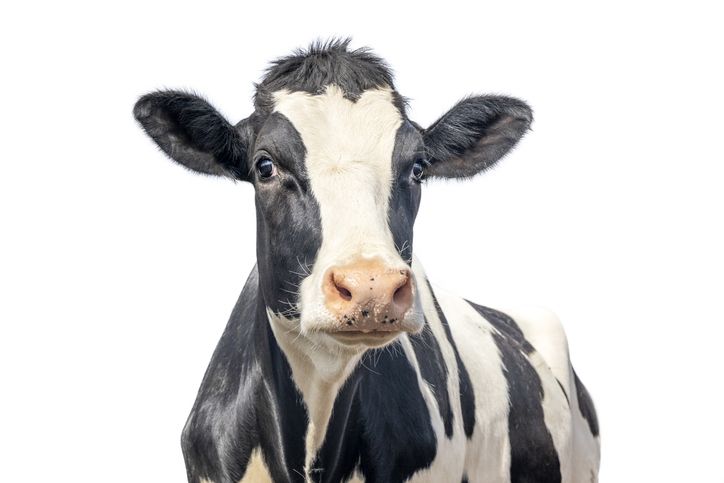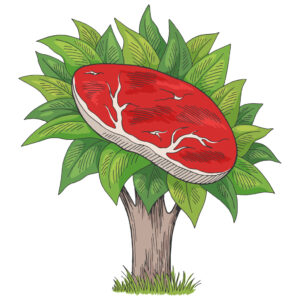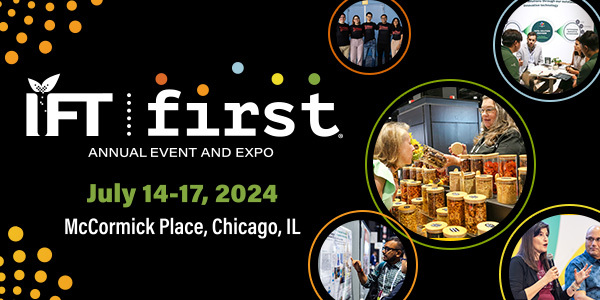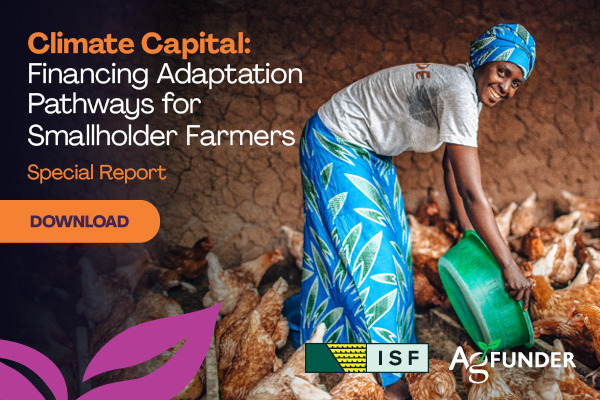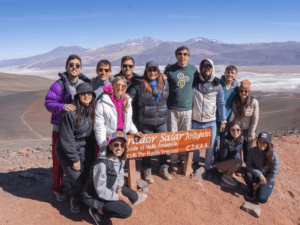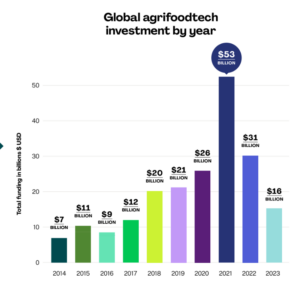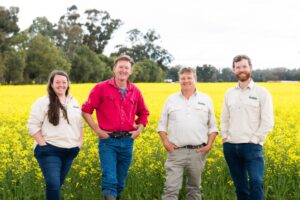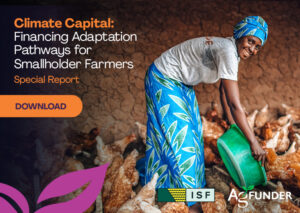- Cultivated meat startup Omeat—which uses nutrients harvested from the plasma of “healthy, living cows” in its cell culture media—has started generating revenues by selling these nutrients to other companies in a serum called ‘Plenty.’
- Billed by Omeat as an “ethical replacement for fetal bovine serum (FBS) that is equally effective at a fraction of the cost,” Plenty is rich in cytokines and growth factors, proteins that encourage cells to grow and differentiate.
- The serum will primarily be used as a supplement for cell culture media used in Omeat’s in-house production process for cultivated meat.
- Before it can get its meat into consumers’ hands, however, the Los Angeles-based startup is generating revenue by selling the serum to firms in biopharma, regenerative medicine and vaccine development that use in-vitro cell culture.
‘Humane, affordable, scalable, highly-effective replacement for fetal bovine serum (FBS)’
A nutrient-rich serum that was also used in early media formulations for cultivated meat, FBS is harvested from blood drawn from bovine fetuses after they’re removed from slaughtered cows. It is a rich source of growth factors.
Given its hefty price tag, inconsistent quality and ethical baggage, however (using FBS in cultivated meat cell culture media defeats the purpose of ‘slaughter-free’ meat, for example) the race has been on to find cost-effective alternatives.
While growth factors are currently made via engineered microbes, plants, or even fruit flies, Omeat is extracting them from the plasma of living cows on its farm.
The plasma is withdrawn in a humane, pain-free process much the same as that used in human plasma donation. Omeat hooks up cows to a plasmapheresis machine that collects blood, separates out the plasma and returns the remaining blood components to the cow. The plasma then undergoes additional processing steps enabling Omeat to extract components of interest such as growth factors.
“Plenty is a nutrient-rich cell culture supplement filled with growth factors and cytokines that play an essential role in regenerative medicine, cell culture, and vaccine production of different types of cells, such as mesenchymal stem cells solution.” Omeat
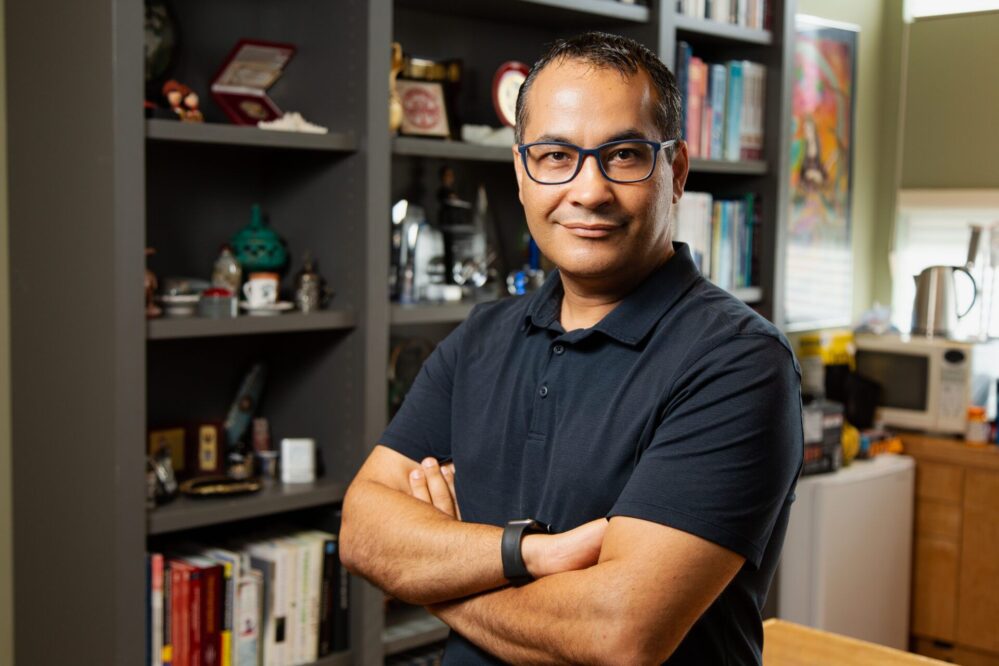
‘FBS has downsides, including high costs, limited and unpredictable supply, and ethical concerns’
But is serum from adult cows as effective as FBS?
Omeat founder and CEO Dr Ali Khademhosseini told AgFunderNews: “It is well known that while adult bovine serum is not as potent as fetal bovine serum, when one enriches it for platelets, that actually changes in the favor of the adult version. This is what we do in our process.
“Platelets are little sacs of growth factors that get activated upon injury during adult regeneration. They are rapidly replenished in the body. That is the reason that our product is more potent than FBS. There is a lot of validation for this in human platelet lysate literature [patients with joint injuries for example often get platelet-rich-plasma injections], but no one has thought about using this process in cellular agriculture before.”
“When it comes to growth media supplementation, FBS is considered the gold standard. However, FBS has downsides, including high costs, limited and unpredictable supply, and ethical concerns about the FBS harvesting process. Synthetic serum substitutes, defined media, and serum-free media have been developed as potential alternatives, but they still have limitations that need to be addressed before they can completely replace FBS.” Omeat
‘This will always be more economical than growth factor production and separation’
Asked if using serum from living cows is a short-term stopgap for scaling cultivated meat production before we get mass production of growth factors from animal-free sources such as GM microbes or plants, he said: “This [harvesting from living cows] will always be more economical than growth factor production and separation.
“What is important to understand is that even [cultivated meat] companies that claim to have moved away from FBS still use animal-derived albumin [in their cell culture media]. The ways animals make such proteins is much more efficient compared to what we now do using recombinant protein technology.”
With this in mind, does Omeat plan to supply other cultivated meat companies with its serum?
According to Khademhosseini: “There is interest although we have not really pursued that as we initially want to get out our own product in terms of meat. Right now we’re supplying it [the serum] to R&D and pharma partners.”
Armed with $40 million in funding, Los Angeles-based startup Omeat recently emerged from stealth with a “simple and elegant solution” to scaling cultivated meat production involving the humane extraction of growth factors and other components from “healthy, living cows.”
- Founded two years ago by tissue engineer Dr. Ali Khademhosseini, Omeat raised $3.5 million in seed funding in 2021 and $36.5 million in series A funding in 2022 backed by S2G Ventures, Google Ventures (GV), Bold Capital Partners, Tyson Ventures, Rethink Food, Trailhead Capital, and Cavallo Ventures.
- It is currently building a pilot plant in Los Angeles that will be operational later this year.
- Khademhosseini, who was born in Tehran and grew up in Canada, is the director and CEO of the Terasaki Institute, a nonprofit specializing in biomedical innovation, and former professor at the University of California, Los Angeles. Between 2005 and 2017, he was a professor at Harvard Medical School, and the Wyss Institute for Biologically Inspired Engineering.
Further reading:
Omeat emerges from stealth armed with $40m to scale novel approach to cultivated meat production

